''Lukashenko is always trying to impose his own particular agenda''
Alexander Fadeev — about the debts of Belarus to Russia, additives in Belarusian products banned by our GOSTs, and the impossibility of reaching a compromise with Lukashenko through negotiations
''Belarus is trying hard to reduce the price of gas, saying that it is necessary to establish equal conditions for the economy. But in this case, Belarus needs to become a region of Russia because there are no equal conditions for the objects of economy in any union in the world,'' emphasizes Alexander Fadeev, the head of the Department of Belarus of the Institute of CIS countries. The expert told in the interview to Realnoe Vremya why the Russians again have witnessed a conflict in the Russian-Belarusian relations.
''Belarus actually froze the creation of the Union State in 2002''
Mr. Fadeev, what is happening now in the Russian-Belarusian relations? Is this a usual stage of Alexander Lukashenko's discontent with the actions of the Russian side or it is a story when everything comes to talks about a possible unification of the two states, more serious one?
Here everything is clear — this year marks the 20th anniversary of the signing of the Treaty on the Union State between Belarus and Russia, and this is quite a significant historical period — it's time to sum up the results. And these results are quite disappointing. Here I would like to highlight one important nuance that many do not know: the 1999 Treaty was drafted under previous President Yeltsin, but was signed not by Yeltsin, but by the current president. Putin is a very responsible person, statesman of the highest scale, and of course, for all the documents where he has signed he feels personal responsibility and is painfully aware of those moments when something does not go as it was once planned. This also applies to the treaty with Belarus. Those documents that seemed to give impetus to the development of the two states has not led to this development, but led to a certain impasse.
What is it about?
Putin is not satisfied with the failure to comply with the basic provisions of the Treaty, which clearly spells out both political and socio-economic and all other integration. Unfortunately, the integration has developed in neither of these areas, and from Moscow's point of view, this is the fault of the Republic of Belarus, which actually froze the creation of the Union State in 2002.
Many experts say that the freeze is connected with that Lukashenko felt that his state could be absorbed by Russia. You spoke about political integration, where there is no development, Prime Minister Medvedev said about the need for deep integration a couple of months ago, and then there were talks that Russia really wanted to have Belarus in its composition. What are we to make of this political integration of the two countries?
I will speak negatively about whether Putin wants to include Belarus in the composition of Russia.
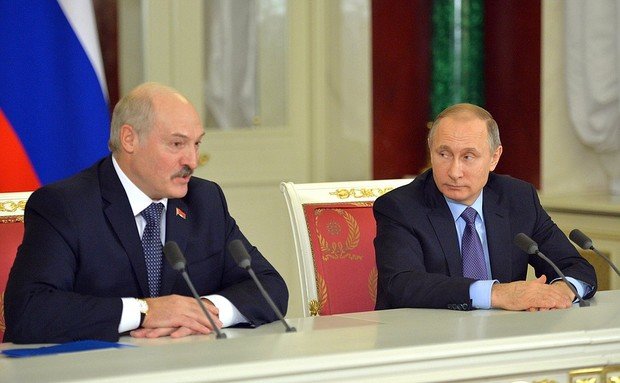
''A political integration was provided for in the 1999 treaty, yes, there was Medvedev's statement as well, but we, Russia, left the political aspect out the framework, and Putin does not raise this issue, and even from the point of view of Lukashenko, Putin has never put this question of unification to him.'' Photo: kremlin.ru
But he never gave a clear answer to this question.
I'll explain my point. Political integration was provided for in the 1999 treaty, yes, there was Medvedev's statement as well, but we, Russia, left the political aspect out of the framework, and Putin does not raise this issue, and even from the point of view of Lukashenko, Putin has never raised the matter of unification with him. I hope your readers believe the presidents of the two countries, that in such aspect — who absorbs whom and who unites with whom — there is no such question. Now the issues that are not secondary, but are also not political, have been brought up for discussion, and Moscow has tried to get the Belarusian side to revise these issues — to reconsider how and what is going on in the economic relations.
The speech is limited to just a few problems of purely financial and economic aspect and no one has posed any other challenge to Belarus and they do not exist in principle. The sovereignty or independence of the Republic of Belarus is not threatened, especially from the Russian side.
''Under the presidency of Lukashenko, Minsk will not be able to pay off the debts either to Russia or to other capital exporters''
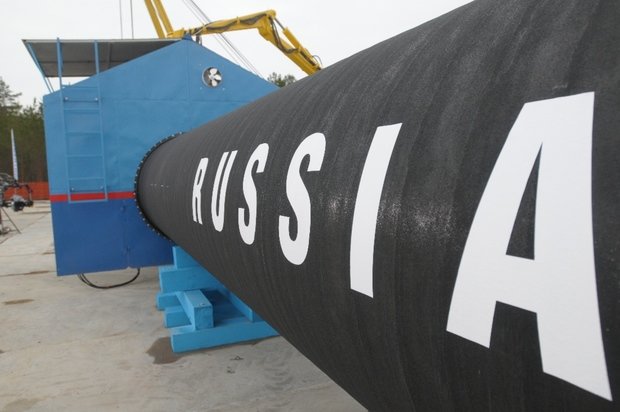
''Lukashenko has a lot of price complaints — concerning prices for oil, gas. But this is a long story, and the previous years were characterized by oil, gas, sugar, candy, beer wars, but it's all pure economy, pure trade.'' Photo: gazprom.ru
Why was there no political integration? Why did union courts, parliament fail to be created? Is the reason in the personality of Lukashenko or in the ambitions of the both presidents?
The Treaty on the Union State was adopted in all readings in Moscow and Minsk, except for the last one, and at this moment all the activities under the Union Treaty have been terminated and they have started thinking about adopting a constitutional act. But everything turned out to be more complicated because any joint constitution affects the sovereignty of the state. Neither the Russian nor the Belarusian side was ready to give up sovereignty. For many years they have said that the constitutional act would be ready, many editions of the act were prepared, and then decided to refuse this idea. It was the mutual decision of Moscow and Minsk.
So, there is no politics in their relations, but there is a sharp and fundamental dispute concerning the economy?
The economy is a more acute problem because the economy of the Republic of Belarus is being in a tense state. I do not want to say that it is in crisis — no, but there are elements of the crisis: Belarus for many years can not get out of the debt pit, all attempts within the republic to adopt laws that would limit foreign borrowing were violated (initially Belarus wanted the debt to be not higher than 10 per cent of total GDP, but now, according to official data from Belarus, their national debt is 50 per cent of GDP) and now the country is going to experience more difficulties with debt service obligations year on year.
Look, Belarus cannot pay off debts even to Russia! Although Putin said that Belarus faithfully fulfills its obligations to service the Russian loan, but how does it fulfill them? Let's take a look, Minsk again asked Moscow for a loan of $600 million, which means that Belarus does not have money to pay Russia its debts. Well, Belarus is refinancing these debts now, but these 600 million dollars will go not to the economy, not to investments, not to the banking sector, but to Russia again.
But I think that under Lukashenko's presidency Minsk will not pay off its debts neither to Russia, nor to other capital exporters who gave loans to Belarus. For example, the International Monetary Fund has already given up on Minsk and gives nothing to Belarus. Of course, Belarus paid off to them on time, but after analyzing the situation in the economy and in the financial and credit sphere, the IMF is in no hurry to give another tranche to Minsk. Of course, the latter has other creditors, for example, the European Bank for Reconstruction and Development, which gave the country a record amount — 380 million dollars, but this loan is only for the purposes that the bank has designated, and this, if you like, speaks about some element of external management: it is the European capital will decide where it will invest its money in Belarus. It can invest in small businesses, in alternative energy, somewhere else, but the main thing is that it is the bank, not Lukashenko, will consider what is necessary.
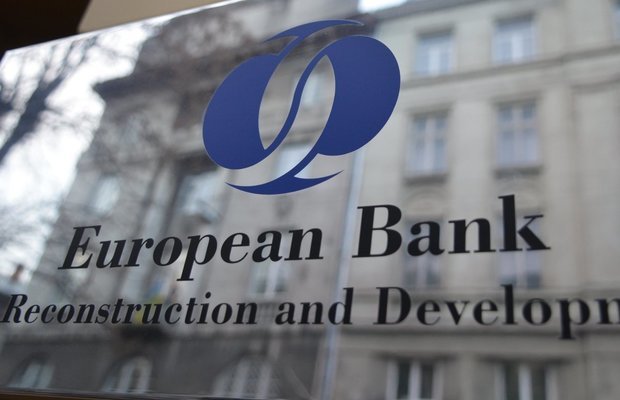
''European Bank for Reconstruction and Development, which gave the country a record amount — 380 million dollars, but this loan is only for the purposes that the bank has designated, and this, if you like, speaks about some element of external management: it is the European capital will decide where it will invest its money in Belarus.'' Photo: theins.ru
Maybe because of this situation with loans from the EBRD Lukashenko is nervous?
Because of this, too, because all the previous plans to attract foreign investment by Belarus have not been fulfilled. Why? Because for the investor, guarantees and first of all guarantees related to the possibility of acquiring property in the Republic of Belarus are important, and there are no such guarantees from the leadership of Belarus, and as you can see, at the highest level President Lukashenko says that Belarus will not allow privatization of either large or medium-sized state enterprises or land.
Naturally, on the one hand, it is this factor, and on the other hand, the fact that Belarus is in debt, deter investors. If you look at what most of the investments were made in Belarus, we will see that it is mainly Russian investments.
''There have been cases when the Belarusian products were found to have additives banned by our GOSTs''
What is more important for Lukashenko today — credits, normal exports to Russia of Belarusian products, or some other preferences from Russia?
The most pressing issue is the agricultural export of Belarus – of meat, offal from meat, milk, dairy products, cheese. When the sanctions of the West began, Russia introduced retaliatory measures, that is, the food embargo, but many European products flooded to us through the territory of Belarus, and Belarus profited from this and continues to profit. When Belarusian exporters are caught red-handed and when it turns out that goods of non-Belarusian production are exported to the vast Russian market under the guise of Belarusian products — this, of course, causes a negative reaction from Moscow. Well, what can we do if half of the ''Belarusian'' cheeses are Ukrainian-made cheeses, and Ukraine, as you know, has joined the sanctions against Russia.
In this regard, all the claims of Belarus that we have some kind of control look strange. In addition, there were cases when antibiotics, additives, which are prohibited by our GOSTs (a set of technical standards maintained by the EASC, a regional standards organization operating under the auspices of the CIS — editor's note) in the food industry, etc., were found in Belarusian products, and at the latest meeting Rospotrebnadzor gave to the Belarusian side huge materials for study — so that they did not say that everything here is allegedly biased. On the other hand, we have our own Russian producers of agricultural products, and we cannot infringe on their rights. What do we have as a result? Belarusian agriculture, which is largely subsidized by the state, has the opportunity to resort to dumping in the supply of agricultural products, Russia also supports farmers — primarily in the price of fuel, but in this case, our producers will still lose the competition. And the thing is not in the quality of goods, but in the price — the Belarusian price causes a negative reaction of our farmers.
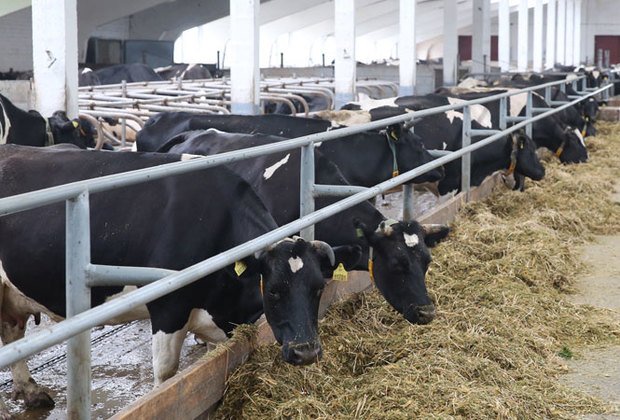
''Belarusian agriculture, which is largely subsidized by the state, has the opportunity to resort to dumping in the supply of agricultural products, Russia also supports farmers — primarily in the price of fuel, but in this case, our producers will still lose the competition.'' Photo: president.gov.by
As for machine building products, then Minsk requires equal conditions for economic entities — for the same enterprises. First of all, this applies to energy carrier prices because the enterprises of Belarus are energy-intensive since they are mostly non-modernised. The price of energy resources affects the final cost of production, so Belarus is trying hard to reduce the price of the same gas, saying that it is necessary to establish equal conditions for management. But in this case, Belarus should become a region of Russia! Because there are no equal conditions for objects of economy in any Union in the world! I don't know where Lukashenko took ''equal conditions'' from. Let him look carefully at the European Union and see if there are equal prices for energy carriers. Their prices are different — in Lithuania and Poland, Latvia, in Estonia, in France and in Germany.
What Lukashenko is saying is absurd. I understand why the Russian government cannot accept this. The thing is that even the pumping and transportation of these resources to Belarus is more distant to the places where oil is extracted than in the Russian regions — and why it should be equal to Russian enterprises is not very clear. In addition, the price of energy carriers for Russian enterprises is steadily growing from year to year, so what Lukashenko is asking for may come back to haunt him when it turns out that he receives the same gas at a price lower than the Russian ones.
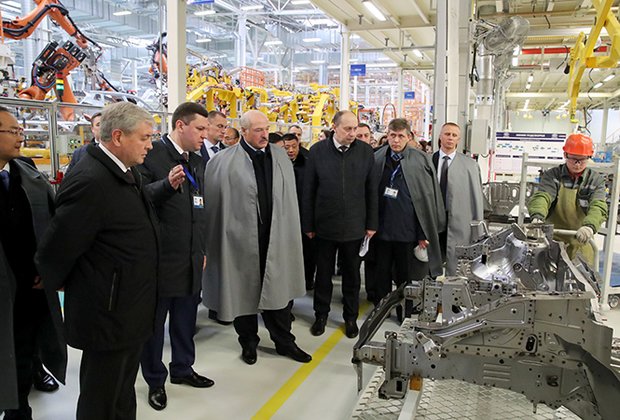
''If it was not profitable to cooperate with Belarus and trade with it for our companies, they would not do it. It is profitable for them, there are additional jobs and so on.'' Photo: president.gov.by
''Moscow is clear-eyed about the role of Belarus in the Western direction, and its readiness to fulfil its allied obligations''
Based on these difficulties, will Lukashenko more often look to the West for more economic support? We have recently learned that he has lifted restrictions on a number of employees of the US Embassy, which were introduced 15 years ago.
Lukashenko said that, of course, they need to look for other markets for their products, they need to have good relations with NATO, they need to conclude an agreement with the European Union on visa-free regime (or facilitation of visa cooperation), but such work has been carried out for a long time. If we talk about the same NATO, in the '90s Lukashenko had a very active cooperation with this military-political union, but then it was frozen because of the creation of the Union State. However, this cooperation was resumed in 2015, and Belarus is very active in this direction. Therefore, it would be wrong to say that Lukashenko is focused only on the Russian vector, and he himself tells about this. He sets the task to balance Eastern and Western vectors of partnership for Belarus.
Recently, in an interview with our publication, well-known political scientist Leonid Radzikhovsky said that Lukashenko can still tell Moscow that he ''ensures Russia's geopolitical security from Merkel's tank divisions'', and it buys into it. Is it true now?
Lukashenko has been acting as a peacemaker and peace-lover in recent years, saying that Belarus is not threatening anyone and is not going to threaten, that its security doctrine is defensive, that the army has been reduced, that Belarus has no aircrafts and aircraft carriers that could strike somewhere deep into the enemy's territory. And the exercises conducted by Belarus and Russia are only defensive in nature – this is deliberately emphasized, and, in addition, these exercises (though without coordination with the Russian side) are attended by NATO observers, who demonstrate that Belarus is open and does not threaten anyone. But about tanks of Merkel Lukashenko says nothing! Of course, from time to time he says that he is concerned about the aggravation of the situation in the Baltic republics, where military contingents with heavy weapons are concentrated and he says that Belarus will give an adequate response, but on the other hand, he is still for establishing benevolent and positive relations with NATO.
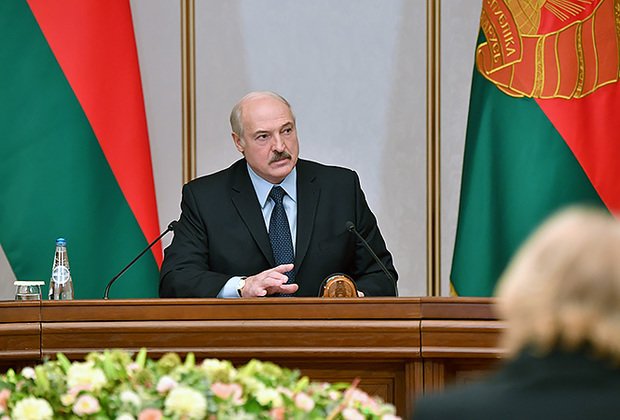
''It is not enough to be re-elected — he still have to hold this post, and if the economy collapses, nothing will save Lukashenko from collapse. Therefore, he is trying to enter the markets of all countries with Belarusian products.'' Photo: president.gov.by
What can we expect in the ''Belarusian-Russian theme'' in the near future?
As an authoritarian leader, Lukashenko believes that he will solve all the issues and can solve only with the president of Russia, so if he expects something, it will be only from Putin. Of course, Medvedev's statement in Minsk about deep integration caused a shock to Lukashenko — their prime minister cannot say such in their country. But he expects radical steps from Putin.
Is it possible to find a mutually beneficial solution to complex issues in the relations between the two close countries?
Lukashenko is not a man of compromises — he always is always trying to impose his own particular agenda, and if he does not succeed, he tries to impose it through some international structures — the Eastern Partnership, for example, or through the EU countries — the same Germany. And he will seek to succeed because he is a man of great energy and patience in this regard. It is very difficult to expect a compromise from him. Lukashenko can be put in a difficult situation when he will have to make a decision, but it is an illusion to get compromises from him through negotiations.